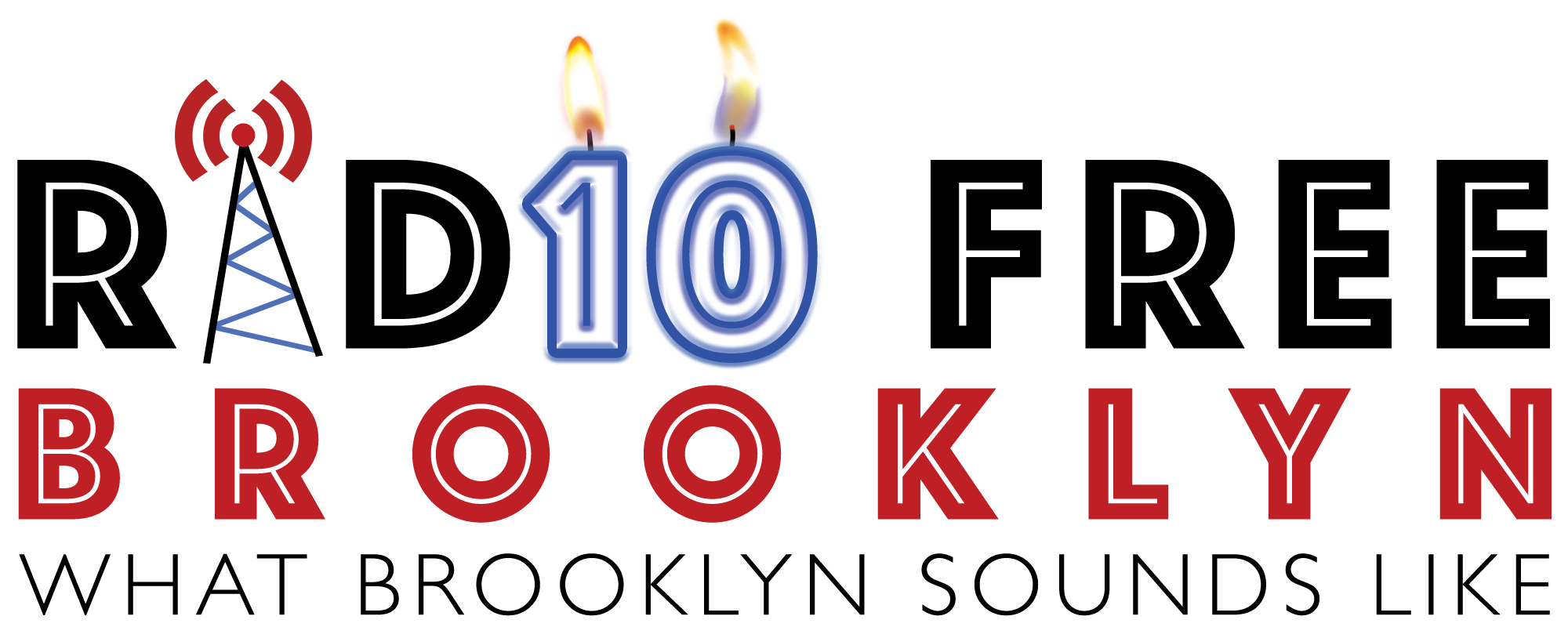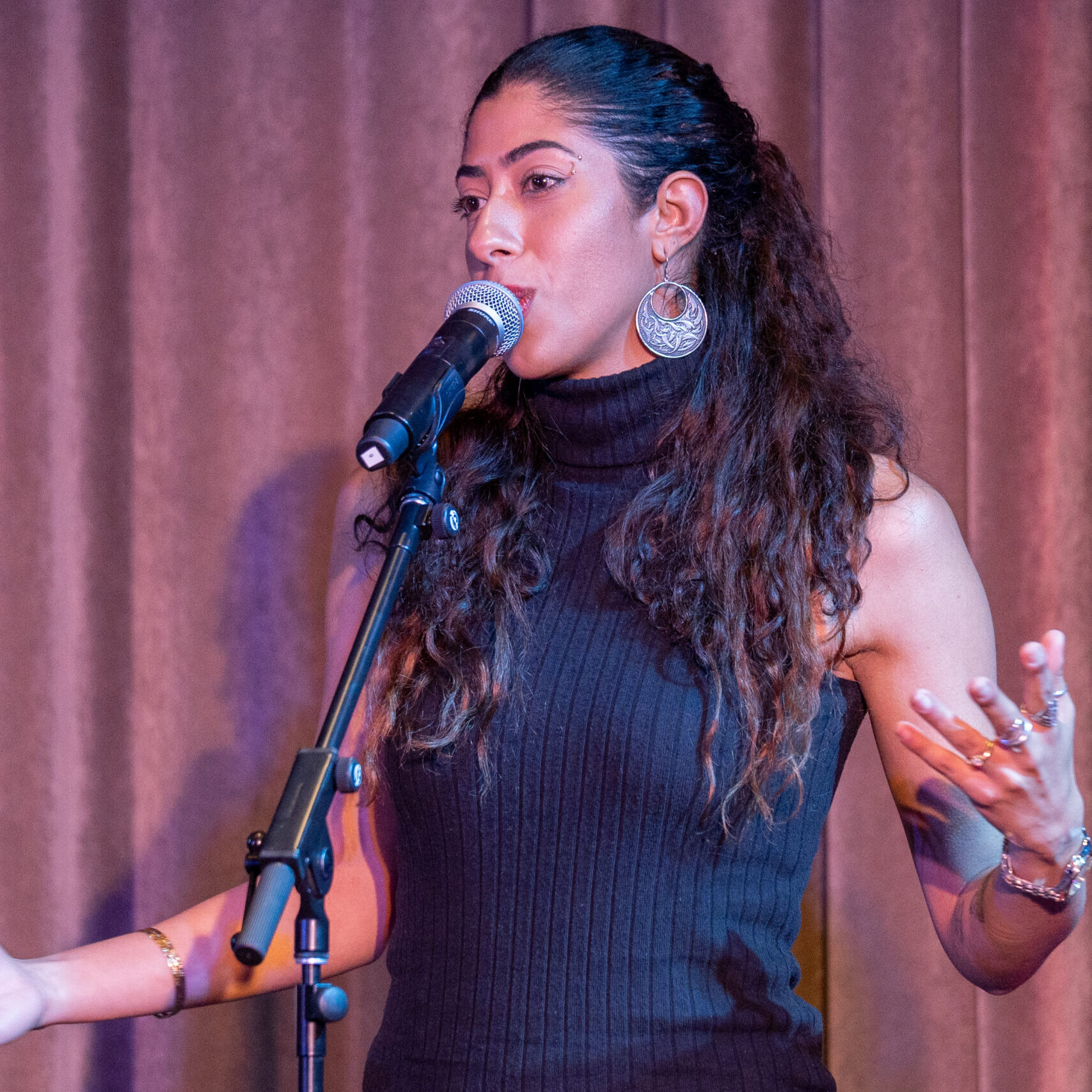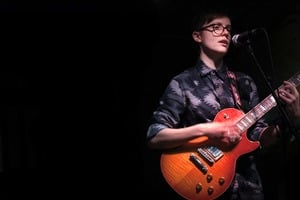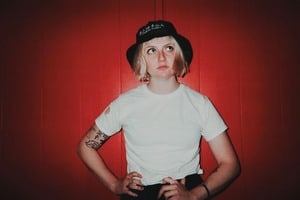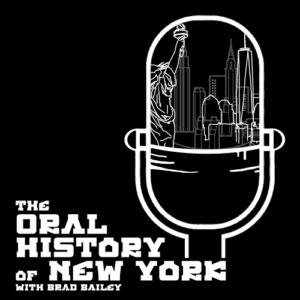Radio Free Brooklyn attended the festival’s opening event, “The New Rap Language: How Musicians Continue to Transform the Spoken Word,” and spoke with New York Public Library staff member Vadana Pawa about putting the festival together.
Literature in the classic sense has a narrow connotation, referring to books, short stories, or other texts intended for reading. Those at the New York Public Library (NYPL), however, are expanding their definition of literature to encompass more modern practices of self-expression. For the past five years, the NYPL has hosted the New World Literature and Arts Festival, bringing events centered on modern literature to libraries across the city.
Vandana Pawa, Associate Manager of Adult Programming at NYPL, told Radio Free Brooklyn that the event started as a COVID series designed to keep people engaged with the library’s programming when in-person visits were not possible.
“We wanted something for people to tune into that was enriching, a way to connect people during times of isolation,” Pawa said.
Since its first iteration in 2020, the festival has expanded its program to include 10 to 12 in-person feature events with remote capabilities. The scope of the festival has expanded to encompass a broader range of ideas about what literature can mean. Book talks are still a lively part of the festival schedule, but so are theatre performances, discussions of music or recipes, and drag shows.
“We’re looking to maintain a celebratory vibe. With the political climate we’re facing, so many places are turning away from multicultural spaces. We’re hoping to do the opposite.” Pawa explained.
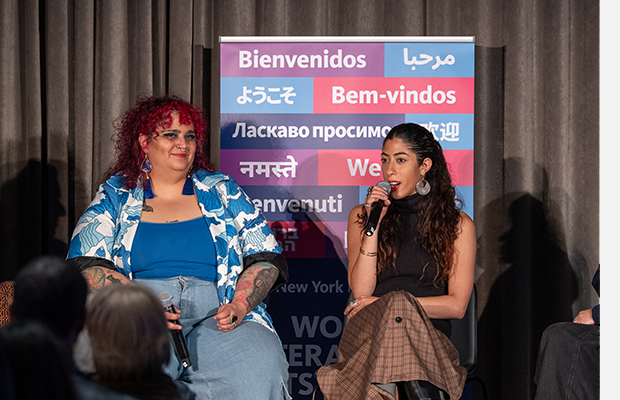
Radio Free Brooklyn attended the festival’s debut conversation, “The New Rap Language: How Musicians Continue to Transform the Spoken Word.” The event was held on April 15 at the Stavros Niarchos Foundation Library in Bryant Park, behind the notorious Stephen A. Schwarzman building. Musicians Audry Funk, Bartika Eam Rai, and Felukah sat down with journalist Jessica Lipksy to discuss how using their native and adopted languages impacted their artistry.
The conversation was inspirational, as the three spoke passionately about their work, their home, and how immigrating impacted their music. Audry Funk, or Audry Bustos Díaz, is a singer/ songwriter from Puebla, Mexico who specializes in Spanish Hip-Hop. Her style is unapologetically herself, infused with high-energy beats and intentional messaging. As an activist, her songwriting underscores feminist and immigrant stories that often go unheard. She discussed the hardship of moving to New York City as an immigrant with no support system. Music was one of the ways she connected to both her heritage and the people around her, utilizing Spanish as a bridge.
Eam Rai is from Kathmandu, Nepal, and only experimented with transforming her prose into song after immigrating to the United States. At the performance, Eam Rai explained that her medium is intertwined with her longing for home and her identity crisis of existing as a Nepali in a non-Nepali world. Because of this, her discography is intentionally recorded in Nepali.
Felukah is an Egyptian rapper and poet paving the way for Arab women, blending her Arabic culture into Western sounds. Her work reflects her deep care and passion for inspiring young women to pursue their dreams. She shared that performing in Arabic allows her to feel connected to her home country and the traditions that raised her.
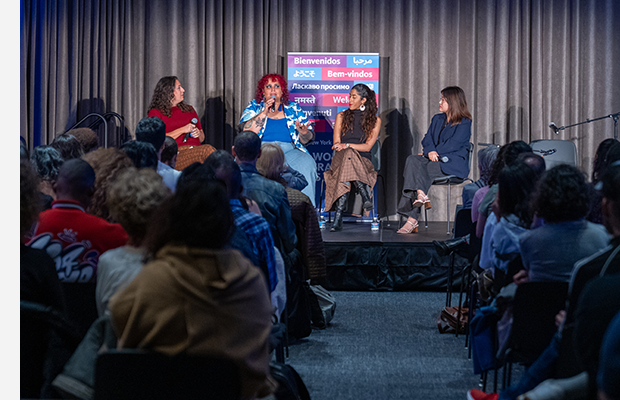
During our interview, Vandana Pawa shared that the integration of multilingual programming was an intentional step in representing all New York City communities. Pawa explained that, in light of the current political climate, the NYPL is doing everything in its power to consider those who are most impacted. The festival expanded its language offerings to include bilingual and non-English speaking events with panelists from multiple nationalities.
To curate the two-week program, the group starts with an idea. The range of ideas can include selecting a location to host, engaging more Spanish-speaking patrons, or incorporating various cultural centers into the programming. Once the idea is generated, it becomes a puzzle to find creatives that fit into each event.
“Asking the librarians at the location we’re hosting is always a good starting place. They know people who are impactful to that specific community, “ she said. “It’s a question of what you already know about the community, artists, and creatives, and pulling that together. It’s a fun scavenger hunt to see who fits.”
Finding a moderator for the panels or discussions is also part of Pawa’s scope of work, which involves finding people relevant to the subject matter. For the opening event on April 15th, Jessica Lipsky was the moderator. Lipsky is managing editor at the Recording Academy’s GRAMMY.com and author of “It Ain’t Retro: Daptone Records & The 21st Century Soul Revolution.” She led the three women through rounds of thoughtful questioning and performances by each of the artists.
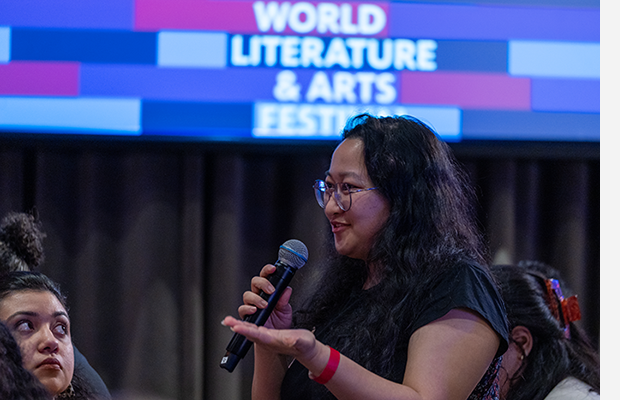
While one of the larger goals of the programming is to engage communities, Pawa said this is also one of the challenges of the festival. As the team expands to new branches and neighborhoods, they ensure the event is not a burden to branch librarians who are already overextended. Additionally, Pawa said there’s “always a question mark” on attendance, or if the audience will enjoy it.
“We make sure we understand the communities we are trying to reach before developing an event there. We want to bring programming to people that is relevant to them and that they actually enjoy.”
The response from the community was positive, according to Pawa. One of the events was a recipe-writing workshop featuring a panel of cookbook authors who discussed their work. Pawa attended the event, and she asked attendees for feedback on their way out. Mostly, people were excited, ready to get to work writing their own recipes.
“I get to see a spark that comes after hearing a great conversation. It’s a fun space to be in to really be able to see how it impacts people,” she said.
PHOTOS: Jonathan Blanc, New York Public Library
